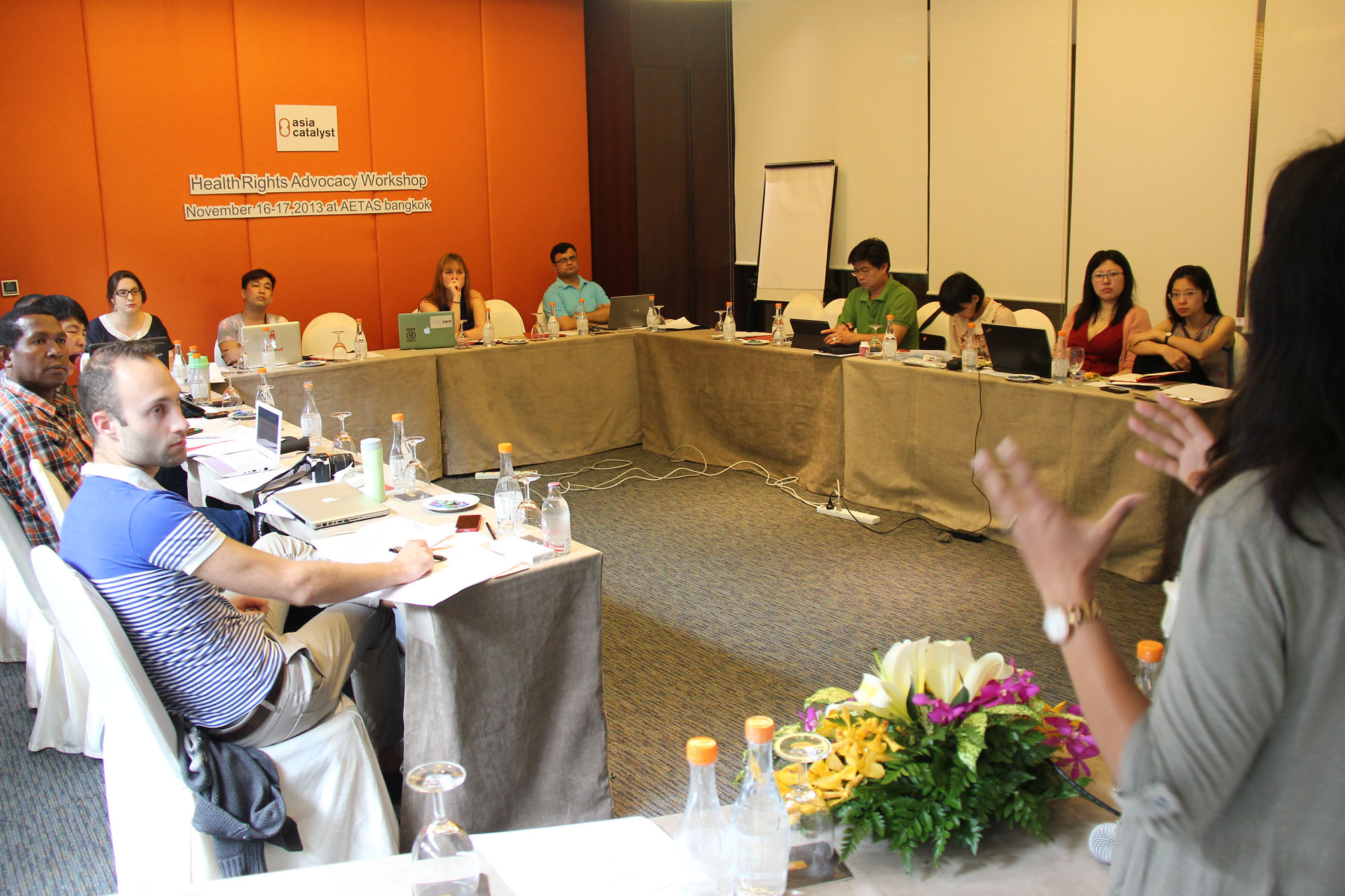
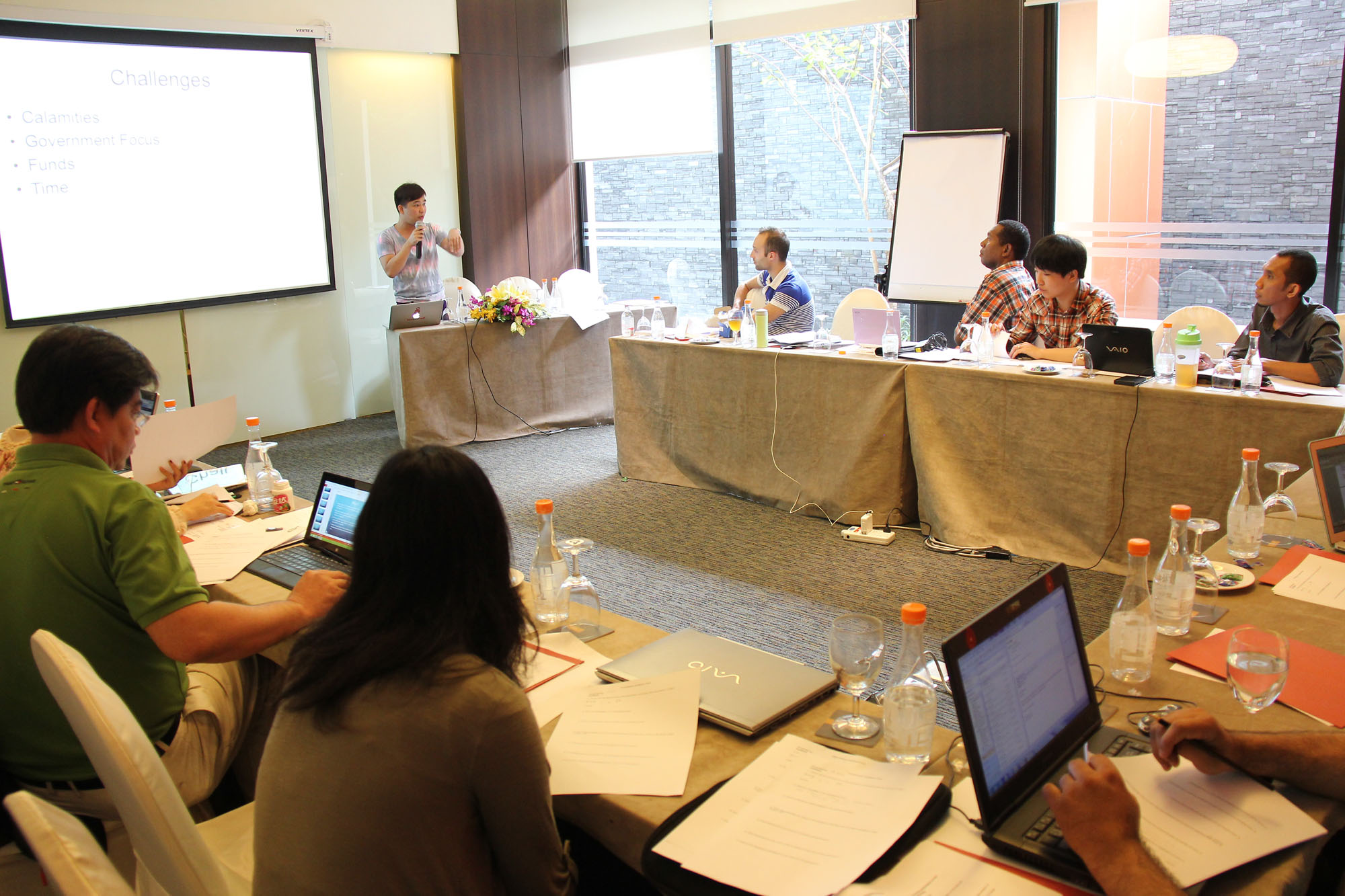
From November 15 – 17th Asia Catalyst hosted the concluding session of the Health Rights Advocacy Training Program in Bangkok preceding the convening of ICAAP 11, the 11th International Congress on AIDS in Asia and the Pacific. The Health Rights Advocacy Training Program brought together civil society leaders and activists representing a diverse breadth of organizations from across South-East Asia, the Pacific, and China to develop and implement rights-based advocacy plans at the intersection of HIV and the right to health. In addition to honing advocacy plans for their organizations, the two workshop training program, which included issue-specific group coaching calls between meetings, offered a space for regional collaboration and coordination ahead of the region’s HIV/AIDS conference, ICAAP, and provided extra travel and strategy support for the six advocates that stayed on after the training workshop to attend.
The program was based on Asia Catalyst’s Change It curriculum which shows how to plan and conduct local, national and international advocacy based on research. The participants were provided with training in advocacy planning and implementation through the course of the program, which resulted in some truly inspiring results. This was the first group training based on the Know It, Prove It, Change It curriculum and based on these results Asia Catalyst is positioned to scale the use of the curriculum around the region.
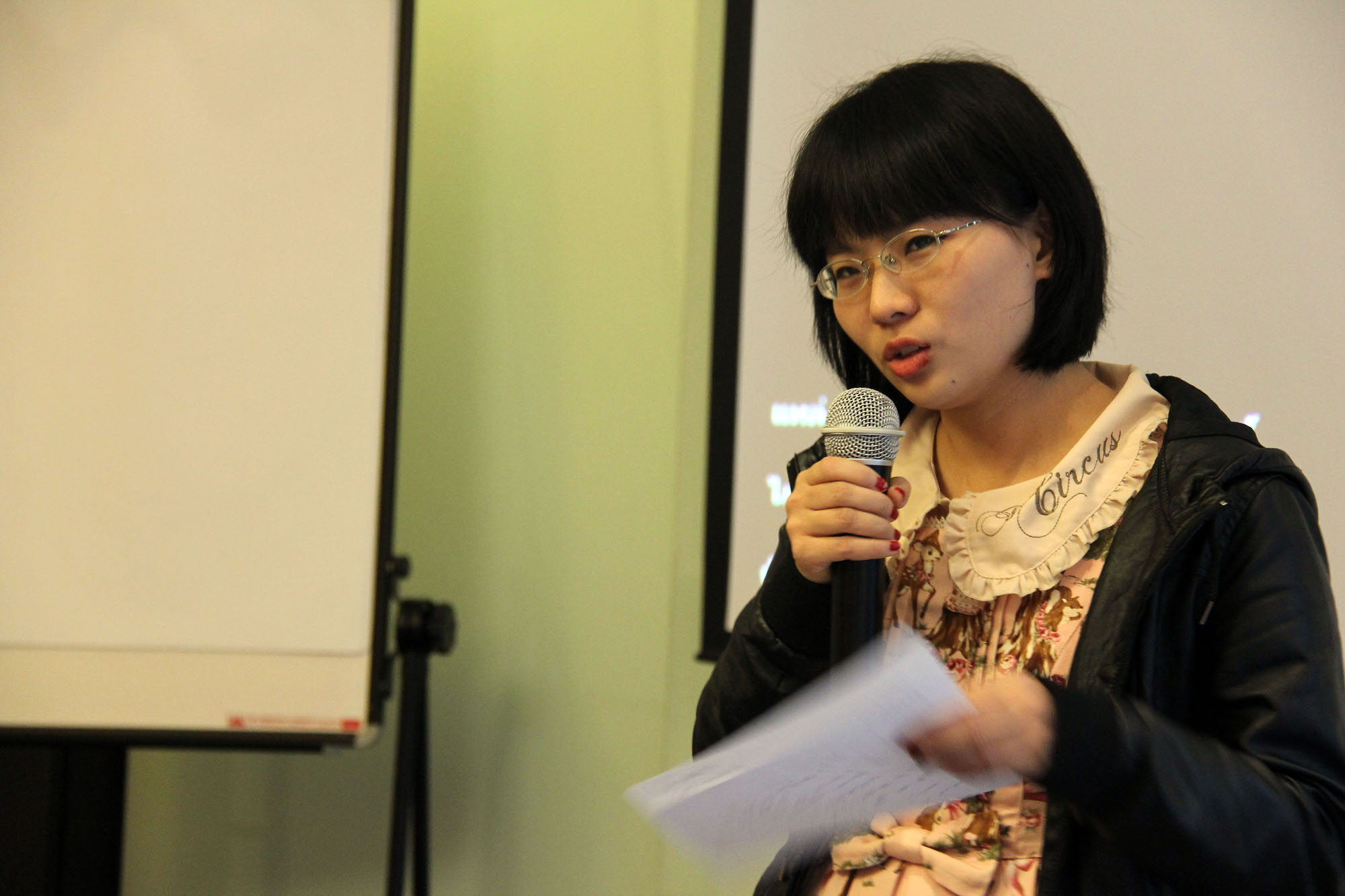 Since the initial session in May, which instructed participants in the critical skills for advocacy planning, the participants developed and began implementation of their advocacy plans. The goals and contexts in which the participants focused were varied and participants benefited from the knowledge sharing on advocacy from diverse contexts. Asia Catalyst staff and volunteers supported the advocates though the course of implementation through monthly coaching calls and individual consultation focused on the critical needs of the participants. In the reconvening of the group for the concluding session participants presented on the development of their advocacy plans and received further training in engagement with both policy makers and funders to ensure the continuation of their growth and success far beyond the program.
Since the initial session in May, which instructed participants in the critical skills for advocacy planning, the participants developed and began implementation of their advocacy plans. The goals and contexts in which the participants focused were varied and participants benefited from the knowledge sharing on advocacy from diverse contexts. Asia Catalyst staff and volunteers supported the advocates though the course of implementation through monthly coaching calls and individual consultation focused on the critical needs of the participants. In the reconvening of the group for the concluding session participants presented on the development of their advocacy plans and received further training in engagement with both policy makers and funders to ensure the continuation of their growth and success far beyond the program.
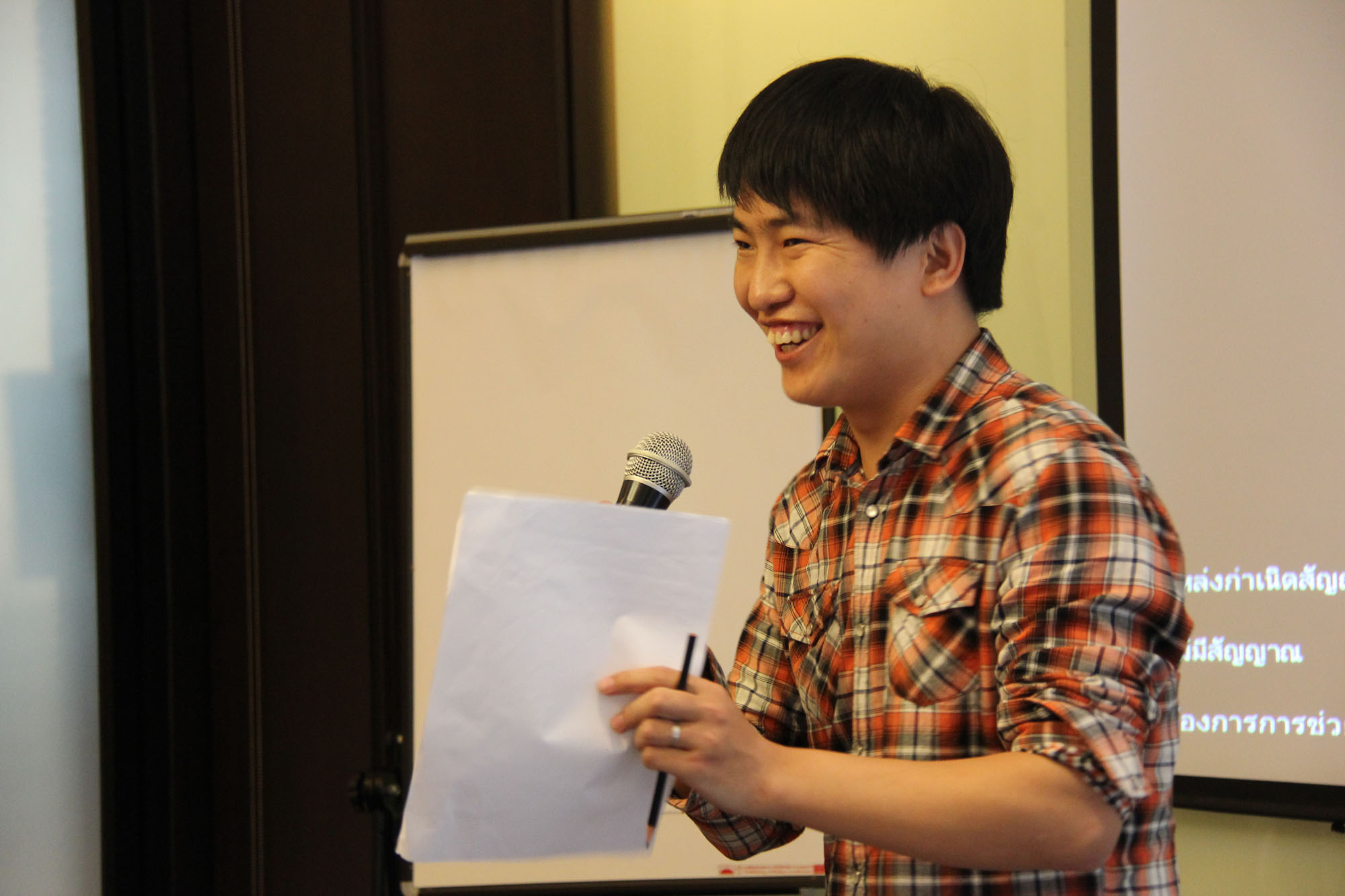 The participants showed tremendous movement in their goals since the original session of the program and Asia Catalyst is excited to see the continual growth of our newest partners in the region. Look out in the coming weeks for profiles of our participant’s work.
The participants showed tremendous movement in their goals since the original session of the program and Asia Catalyst is excited to see the continual growth of our newest partners in the region. Look out in the coming weeks for profiles of our participant’s work.

 In 2012, China AIDS Walk organized 20 fundraising and anti-discrimination events through partnerships with universities, the LGBT community, foreign embassies and gay social clubs. 45 fundraising teams were formed and 120 people from six countries participated in the Walk. Ten celebrities supported the event via video message, social media and direct participation. Pleasure Up and Durex provided funding, and four fundraising events were organized in Beijing bars. Approximately 3,400 individuals donated to China AIDS Walk and it received media attention in the Chinese and foreign press. Several foreign embassies, international organizations and community-based organizations actively supported CAW. Walkers raised 164,705 RMB (roughly $27,000 USD). Funds facilitated access to antiretroviral treatment for impoverished PLHA, and supported initiatives by a local HIV/AIDS community based organizations.
In 2012, China AIDS Walk organized 20 fundraising and anti-discrimination events through partnerships with universities, the LGBT community, foreign embassies and gay social clubs. 45 fundraising teams were formed and 120 people from six countries participated in the Walk. Ten celebrities supported the event via video message, social media and direct participation. Pleasure Up and Durex provided funding, and four fundraising events were organized in Beijing bars. Approximately 3,400 individuals donated to China AIDS Walk and it received media attention in the Chinese and foreign press. Several foreign embassies, international organizations and community-based organizations actively supported CAW. Walkers raised 164,705 RMB (roughly $27,000 USD). Funds facilitated access to antiretroviral treatment for impoverished PLHA, and supported initiatives by a local HIV/AIDS community based organizations.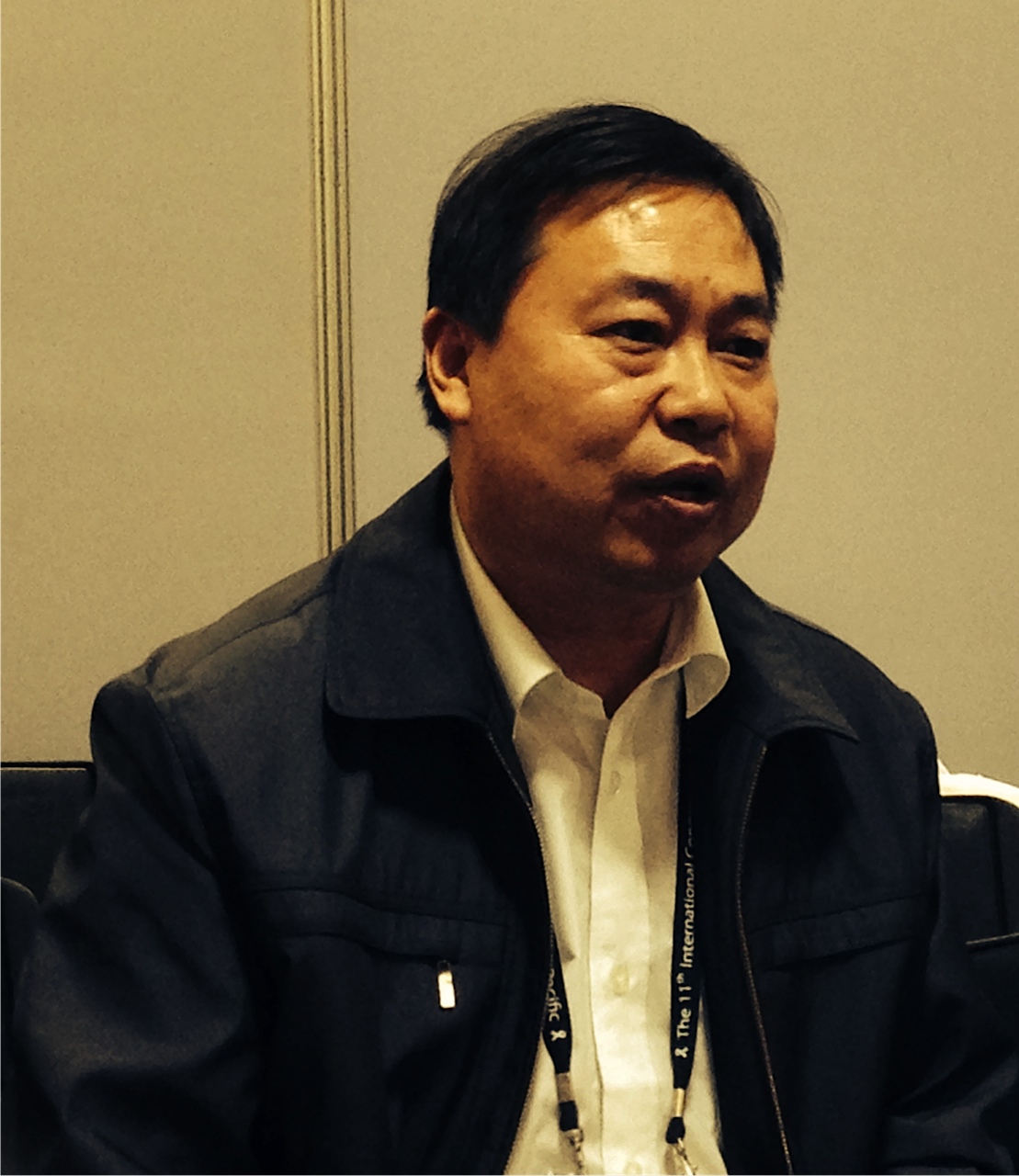 Wang Baoyi is the secretariat for the China HIV/AIDS Community-based Organization Network. The CBO network is the largest network of community based HIV/AIDS organizations in China and counts among its members organizations of sex workers, men who have sex with men, and people living with HIV/AIDS and hemophilia. In China, discrimination in health care setting has become one of the major barriers that prevent People living with HIV/AIDS from accessing universal, life-saving medical service.
Wang Baoyi is the secretariat for the China HIV/AIDS Community-based Organization Network. The CBO network is the largest network of community based HIV/AIDS organizations in China and counts among its members organizations of sex workers, men who have sex with men, and people living with HIV/AIDS and hemophilia. In China, discrimination in health care setting has become one of the major barriers that prevent People living with HIV/AIDS from accessing universal, life-saving medical service.

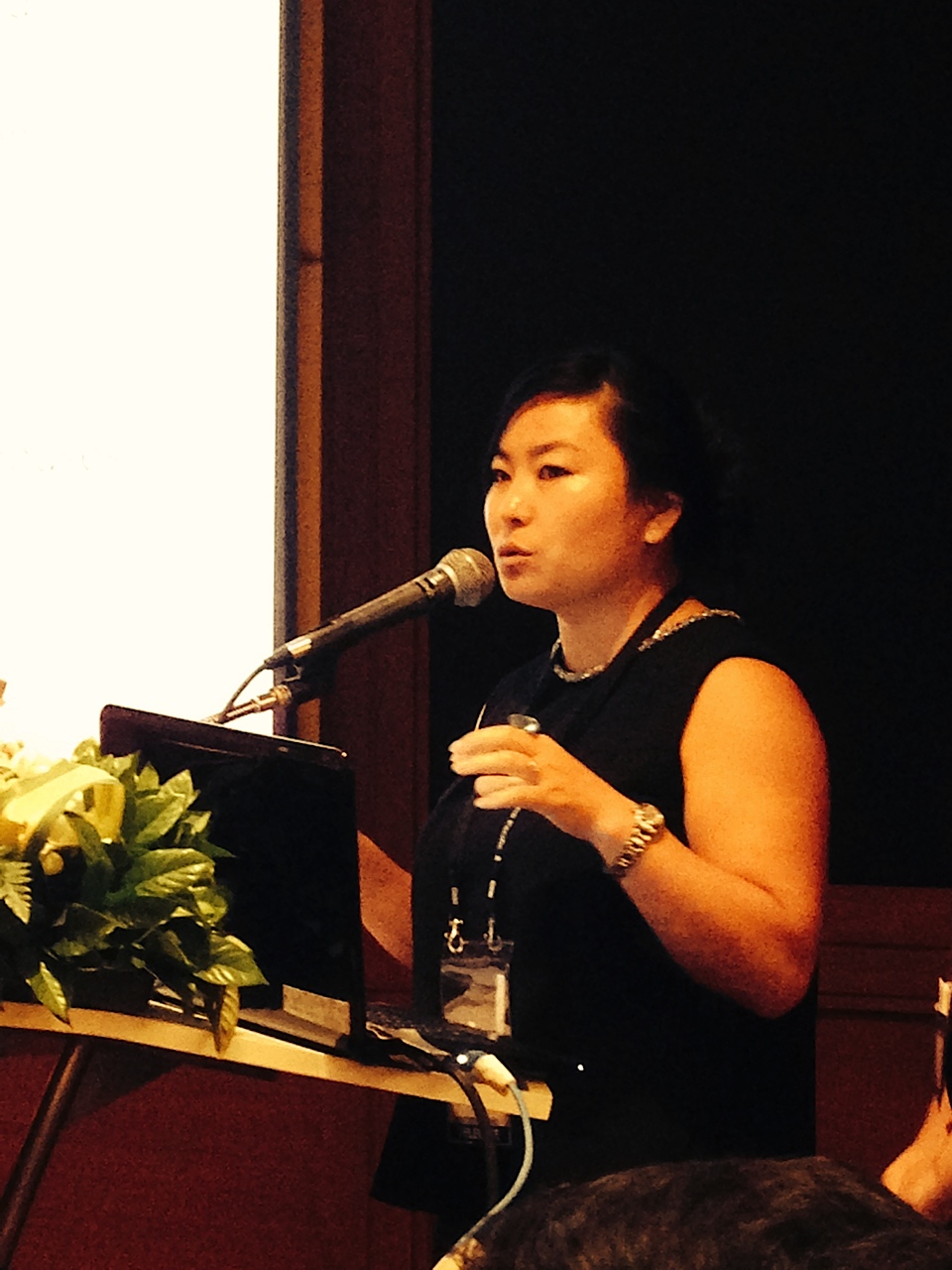 Founded in 2008 to work toward the decriminalization of the sex trade, and prevent violence and discrimination against sex workers, the organization, also provides violence prevention training, training in persuading customers to use condoms, health, legal and human rights training, HIV/STI blood testing, and medical referrals.
Founded in 2008 to work toward the decriminalization of the sex trade, and prevent violence and discrimination against sex workers, the organization, also provides violence prevention training, training in persuading customers to use condoms, health, legal and human rights training, HIV/STI blood testing, and medical referrals.


